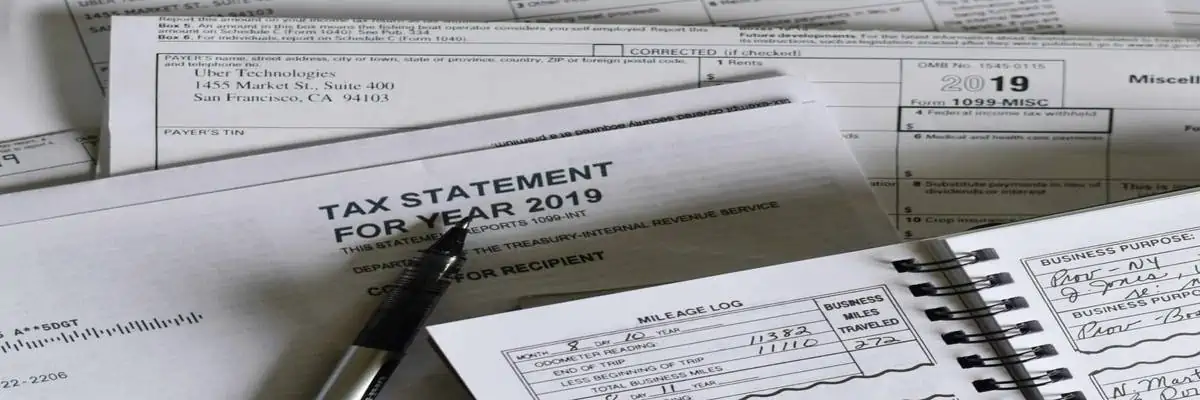Several countries in the Middle East are economic and cultural centres that can offer rich opportunities to international contractors. One of the more distinctive features is that many Arab countries do not impose any type of income tax for most types of earnings.
Given this fact, a contractor’s tax status in their home country may determine their ultimate tax rates. This is unless they have managed to ‘lose’ their home tax resident status. Those who can are in the enviable position of retaining nearly 100% of their earnings.
If you are from the US, you can never lose your liability for tax on worldwide income. However, other countries are more lenient. This will depend on how long you live and work abroad. It also depends on if you maintain any significant ties to your home country. For those permissive jurisdictions, citizenship and a passport alone are not enough to tax you on long-term earnings abroad. But the time frames to lose residency are often several years of continual absence.
What is tax residency?
Tax residency is a financial status that is applied to foreign nationals that work in a country for a certain period. If you meet the time criteria, then you will be taxed just like a citizen of the country. There are some exceptions, however to this. The most common period used is 183 days in 12 months, and after that, you have deemed a tax resident.
The 12-month period is usually ‘rolling’. This means it is not dependent on the calendar year and begins on the entry date. The period is also cumulative, so a quick visit home will not reset the clock just because you crossed the border. The time away is usually just not counted.
Non-Residents
If you stay less than the tax residency period, you are taxed as a non-resident. That amounts to paying tax only on earnings inside the host country. Foreign non-residents may also be offered alternative flat-tax rates to keep things simple.
Tax Residents
Once you cross the tax residency time threshold, you will often need to pay tax on earnings outside the country as well, for the affected tax year. At first, this looks like unfair double taxation assuming you are still liable for tax in the other countries or at home. But there are ways to offset this result with some research and planning around tax treaties. Some countries will only tax you if the earnings are received locally.
How is tax residency different from legal residency?
Tax residency only pertains to the type of income that will be taxed by the host country while you are there. It does not confer any type of legal residency and is not a factor if you decide to pursue legal residency. Stays as short as six months can result in tax residency for ex-pats, which puts them in the same tax status as permanent residents and citizens. But tax residency does not carry any of the other benefits of legal residency, only the tax liability.
Examples of tax residency rules in the Middle East
We’ll be looking at tax residency rules in three different countries in the Middle East
- United Arab Emirates (UAE)
- Saudi Arabia
- Israel
When am I considered a tax resident in the United Arab Emirates?
With a vibrant economy and opportunities in IT, manufacturing and commerce, the UAE is a popular destination for international contractors. In addition, it can allow contractors to retain the majority of their earnings due to favourable tax policies.
In the UAE there is no personal income tax for residents or ex-pats, so this creates a unique value to being deemed a tax resident. If a contractor can obtain UAE tax residency and also ‘lose’ their home country tax status, they would bring their effective global tax rate to zero.
For this reason, there are several steps to go through to obtain the sought-after UAE tax residency certificate to prevent abuse of this opportunity. Many of the double tax treaties between the UAE and other countries require a certificate to qualify under the treaty.
When am I considered a tax resident in Saudi Arabia?
As a global leader in the production of oil and gas, Saudi Arabia can be attractive to contractors with skills related to this industry. Your tax status will depend on how long you stay in the country, but in the end, it may not make much difference for the tax liability.
Saudi Arabia uses the standard 183-day rule for tax residency. If you have a permanent residence, then it is 30 days in a year. And, like in UAE, there is no personal income tax levied on earnings for tax residents. Ironically, non-residents (less than 183 days) who derive income from Saudi Arabia are subject to tax withholding of 5-20%.
There is also a 20% flat tax rate for corporate earnings if you are working within that type of structure. To make up for the lack of income tax, there is a 15% VAT on all goods and services.
When am I considered a tax resident in Israel?
Israel defines a tax resident as one who has their ‘centre of life in Israel. That includes those who stay more than 183 days in a tax year, or 425 days during the previous two years (including 30 days in the current year). Expats who do not meet these criteria are classified as ‘foreign tax residents’. Foreign tax residents only pay tax on earnings derived from inside of Israel.
How can Contractor Taxation help with tax residency?
If you don’t want to take any chances navigating the tax residency rules in the Middle East, Contractor Taxation can be your valuable partner. We have a network of umbrella companies across the Middle East with local experts who know all of the residency criteria and tax rates. This ensures that you will remain in compliance, and pay the correct tax rates under local criteria.
The umbrella company can also assist with handling client payments, withholding taxes and negotiating any client disputes. Please contact us if you are interested in using an umbrella company for all of your contracting needs.





